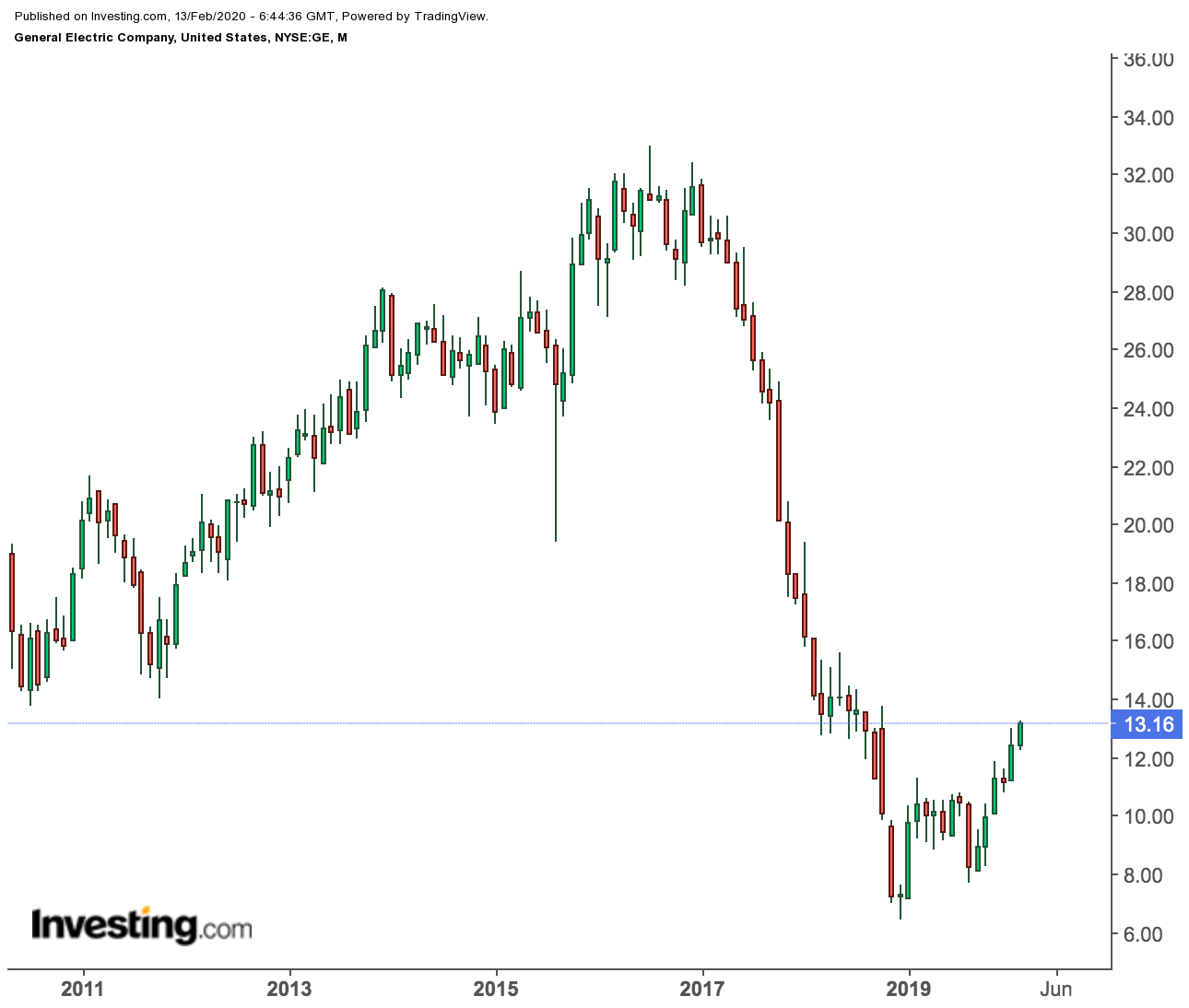More than any other time during the past two years, investors who've been watching closely to see how industrial giant General Electric's (NYSE:GE) turnaround takes shape finally have some reasons to feel confident.
Free cash flow, the most important metric to watch on CEO Larry Culp’s report card, is improving as some of the company’s industrial units start to show signs of stabilizing after a precipitous decline since 2017.
Encouraged by this strength, investors have begun to build their positions in GE stock, which soared 50% in 2019. Trading at $13.16 at yesterday's close after gaining 2.4% through the day, the shares are up more than 15% this year.

But this rally shouldn’t give an overly positive impression of the troubled industrial giant's current situation. The rebound in the shares hasn't been anywhere near sufficient to recover the losses that investors suffered after GE’s collapse since 2017, which wiped out more than $200 billion in shareholder value and forced the company to cut its dividend drastically.
Given this painful past, it’s important to work out whether this turnaround will be sustained or whether it’s just a dead cat bounce.
GE bulls are pointing to several developments they believe make its recovery more credible — including the company's fourth-quarter earnings last month, when it projected free cash flow will at least roughly match 2019’s performance and potentially rise to as high as $4 billion.
That came after GE had reported that it generated $2.3 billion from its industrial businesses over the course of 2019, exceeding the high end of GE’s guidance range.
Power Unit Continues to Struggle
This performance is something Culp has been promising since he took over in late 2018, tasked with the job of saving the GE ship from sinking, as demand for its major products dropped and the level of debt ballooned to an alarming level.
The biggest surprise came from the aviation unit, which reported a 5.7% rise in sales and a 22% increase in orders even after Boeing's (NYSE:BA) 737 MAX was grounded. GE Aviation, through a joint venture with France’s Safran (PA:SAF), makes the Leap engines for the narrow-body jet, which was involved in two deadly crashes last year.
While the MAX grounding remains a big drag on GE Aviation’s cash flows, the division’s sales are improving as demand increases for its Leap engine, which is also used to power Airbus Group's (PA:AIR) A320neo. GE said it anticipates a return of the MAX in mid-2020, in line with Boeing’s forecast.
On the flip side, the company’s power business is continuing to struggle. Both power and renewables units will likely keep burning cash in 2020, with power improving from the negative $1.5 billion in cash flow in 2019 and renewables seeing a deterioration from the negative $1 billion the unit saw last year.
Analysts on the Street are sounding a bit more positive about the company, citing improving cash flows. Bank of America upgraded GE’s stock to buy. Deane Dray, an analyst at RBC Capital Markets said the FCF forecast for 2020 should provide GE stock with an upside momentum.
Currently, seven analysts out of 17 have a “buy” rating on GE stock, two are recommending to sell, while six assign it a “hold” rating, with an average price target of $12.75 for the next 12 months.
Bottom Line
GE’s restructuring is certainly showing signs of momentum and it could very well take hold this year. Despite this optimism, investing in GE remains a risky bet as there's still so much that could go wrong, especially when its aviation and power businesses continue to face uncertainty.
